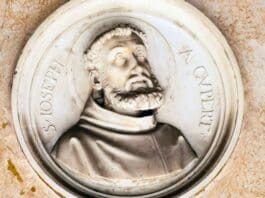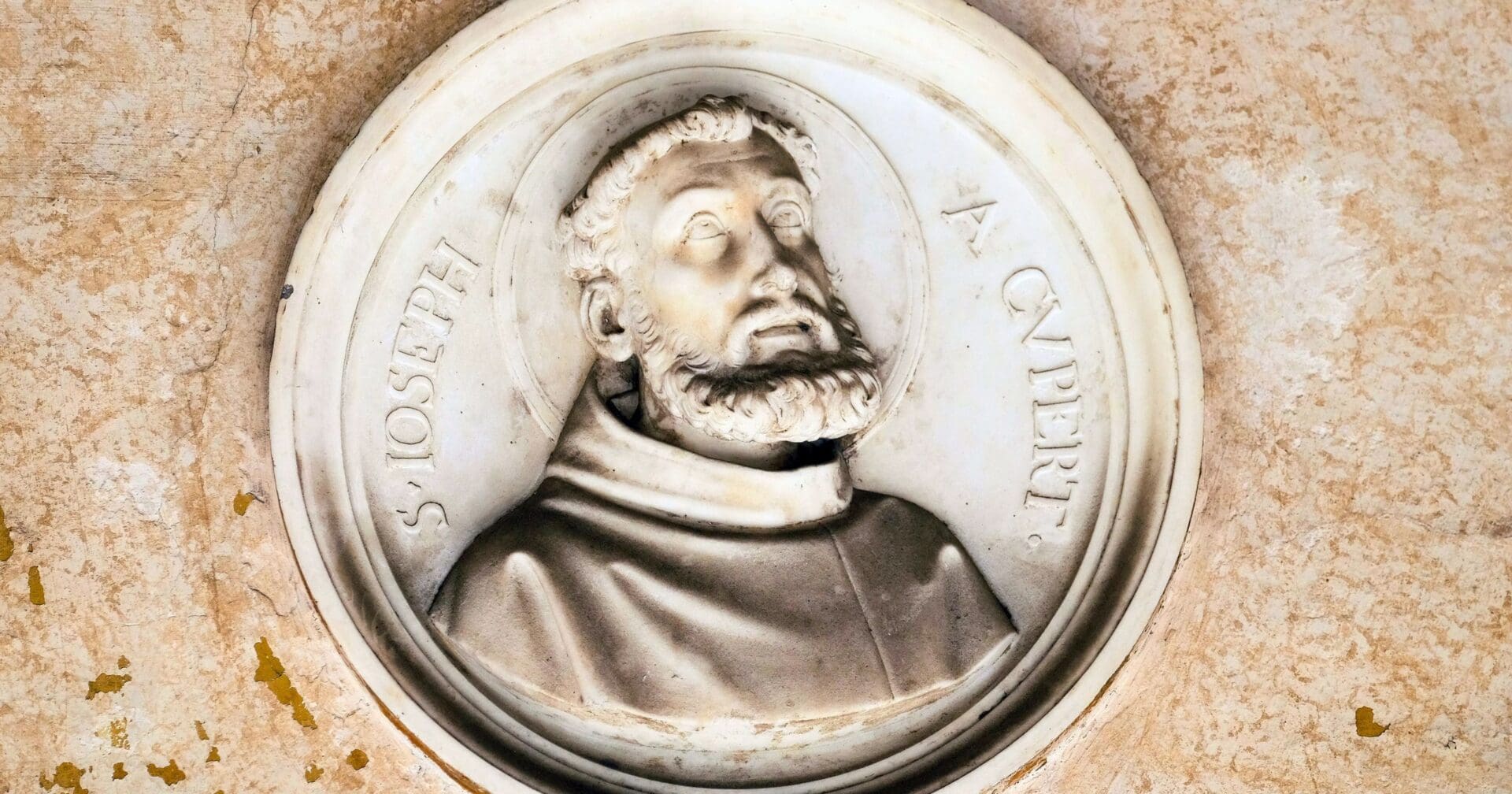
Saint Joseph of Cupertino is the patron of travelers, aviators, astronauts, individuals with learning disabilities, and those faced with exams. Canonized in 1767, his life was a blend of simplicity, deep faith, and the extraordinary.
As a child, Joseph wasn’t known for his wit or intelligence. But what he lacked in learning, he made up for in devotion. He constructed a humble altar, a testament to his early piety, where he would pray the rosary. A debilitating episode of ulcers in his childhood was miraculously healed after a hermit anointed him with oil from a lamp burning in honor of Our Lady of Grace.
At 17, Joseph’s quest for spiritual fulfillment began. Initially rejected by the Friars Minor Conventuals due to his limited education, he was briefly inducted as a Capuchin. However, his uncontrolled ecstatic episodes made his continuation in the order untenable. In his twenties, the Franciscan friary near Cupertino opened its doors to him. Though his academic pursuits remained challenging, he flourished in his devotion and service, often found engrossed in tasks like gardening, tending to animals, and assisting in the kitchen. Occasionally, he’d be spotted drifting aimlessly, unaware of his surroundings.
While his learning disability remained a hurdle, divine intervention seemed at play during his deacon candidacy. Asked randomly by a bishop to elaborate on “Blessed is the womb that bore thee,” Joseph’s response was so profound that he was ordained. His ordination as a priest followed suit in 1628 under rather serendipitous circumstances.
Joseph’s extraordinary mystical experiences came to the fore on October 4, 1630, during a procession celebrating Saint Francis of Assisi. To the astonishment of onlookers, Joseph levitated, floating above them. Overwhelmed by the experience, he retreated to his mother’s residence in embarrassment. But these miraculous levitations persisted. Simple triggers like hymns, mentions of Jesus or Mary, or the euphoria of Mass would often find him airborne. So profound was this phenomenon that even an audience with Pope Urban VIII wasn’t exempt. As he knelt to revere the Pope, Joseph found himself lifted off the ground, only to descend on the order of his superior.
Known for his purity, a sweet aroma often emanated from Joseph. Conversely, he could detect the foul scent of sin, urging those afflicted to cleanse their souls via confession.
Ailing in August 1663, Joseph’s final Mass on the Feast of the Assumption was marked with ecstasies and levitation. Recognizing his imminent departure, he metaphorically referred to his body as a ‘jackass’ scaling a mountain. On September 18, 1663, surrounded by liturgical chants and after receiving the final sacraments, he passed away.
Vast crowds attended his burial at the chapel of the Immaculate Conception. His sanctification by Pope Clement XIII in 1767 further solidified his legacy. Today, his remains rest beneath a grand marble altar in the Church of St. Francis in Osimo, Italy.
Editorial credit: Zvonimir Atletic / Shutterstock.com
The post Saint Joseph of Cupertino appeared first on uCatholic.
Daily Reading
Thursday of the Second Week in Ordinary Time
Reading 1 Hebrews 7:25—8:6 Jesus is always able to save those who approach God through him, since he lives forever to make intercession for them. It was fitting that we…
Daily Meditation
Finding Solace in Jesus
Click here for daily readings “He had cured many, and, as a result, those who had diseases were pressing upon him to touch him” (Mk 3:10). This scene opens with…




